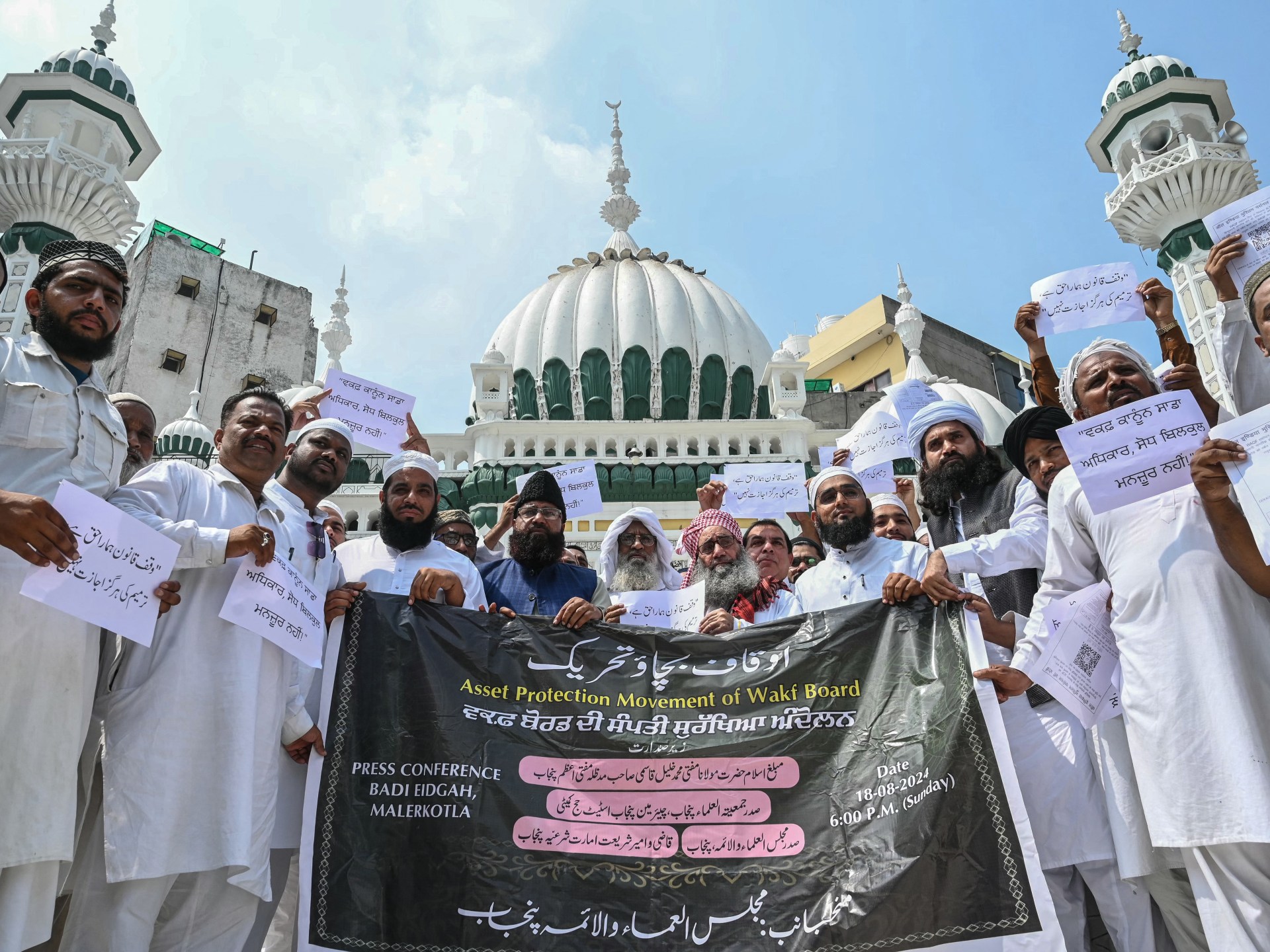India’s lower house of parliament has passed a controversial bill moved by Prime Minister Narendra Modi’s Hindu nationalist government to amend laws governing Muslim endowments worth more than $14bn.
The waqf bill would add non-Muslims to boards that manage the endowments and give the government a more significant role in validating their land holdings. Waqf refers to personal property – moveable or immovable – that is permanently donated by Muslims for religious or charitable purposes.
Modi’s Bharatiya Janata Party (BJP) argues the proposed changes to a 1995 waqf law will help fight corruption and mismanagement while promoting diversity.
But Muslims fear the move could leave waqf properties – historic mosques, shops, shrines, graveyards and thousands of acres of land – more vulnerable to confiscations, disputes and demolitions.
On Wednesday, a heated debate on the waqf bill took place in the country’s lower house of the parliament, with the Congress-led opposition calling it unconstitutional and discriminatory against Muslims.
Yet, the BJP, with the help of its allies because it lacks a majority of seats in the lower house of parliament, was able to pass the bill with 288 members voting for it and 232 against it early on Thursday.
The bill is being debated in the parliament’s upper house on Thursday. If passed, it will be sent to President Droupadi Murmu for her assent before becoming law.
One of the most controversial changes to the waqf bill is to its ownership rules, which could impact hundreds of mosques, shrines and graveyards since many such properties lack formal documentation as they were donated without legal records decades, and even centuries, ago.
Many Indian Muslims fear the Hindu nationalist government will gain far greater control over Muslim properties, particularly at a time when attacks on them have become more frequent and aggressive under Modi. Muslims are often targeted for everything from their food and clothing to interreligious marriages.
‘Blatant infringement on constitutional rights’
In India, waqf properties are spread across nearly one million acres (approximately 1562.5 square miles), nearly twice the size of Mauritius. They are looked after by 32 government-established waqf boards in the country’s states and federally run union territories.
The boards in every state comprise government nominees, Muslim legislators (current, or where none are available, former lawmakers), scholars, and caretakers (“mutawallis”) who oversee property administration. All must be Muslims.
During the parliamentary debate on Wednesday, Home Minister Amit Shah said non-Muslims would be included in waqf boards only for administration purposes and to help run the endowments smoothly. He added that they were not there to interfere in religious affairs.
“The [non-Muslim] members will monitor whether the administration is running as per law or not, and whether the donations are being used for what they were intended or not,” he said.
In a post on X, Rahul Gandhi, the main opposition leader, said the bill is “a weapon aimed at marginalising Muslims and usurping their personal laws and property rights”. He warned the bill was “aimed at Muslims today but sets a precedent to target other communities in the future”.
“We are not scaring the Muslims, you are scaring the Muslims. I am saying that no citizen of this country, irrespective of religion, will be harmed,” Shah said, accusing the opposition of spreading “misconceptions and rumours”.
The All India Muslim Personal Law Board (AIMPLB), a leading Muslim organisation in India, rejected the bill, terming it a “discriminatory, communally motivated, and a blatant infringement on the constitutional rights of Muslim citizens”.
The proposed move will erode waqf boards’ autonomy, the organisation said, calling on citizens to hit the streets if the bill is passed in parliament. The AIMPLB also said it will take the matter to the courts.
“It is okay to reserve two posts in the waqf board for non-Muslims but does it mean that Muslims will get similar reservation in the boards of Hindu temples?” asked Kamal Farooqui, an AIMPLB official. “Modi government wants to control the Islamic land bank and they have no right to undermine our institutions.”
Hindu right-wing groups have already laid claim to several mosques around India, arguing they are built on the ruins of Hindu temples. A 16th-century mosque was demolished by a Hindu mob in the northern Indian town of Ayodhya in 1992 and many such cases are pending in courts across the country.
Muslims, who comprise 14 percent of India’s 1.4 billion population, are the largest minority group in the Hindu-majority nation. They are also the poorest, a 2013 government survey found.
A 2006 report by the government-appointed Sachar Committee had urged an overhaul of waqf boards and monitoring of properties to generate higher returns for the Muslim community.
